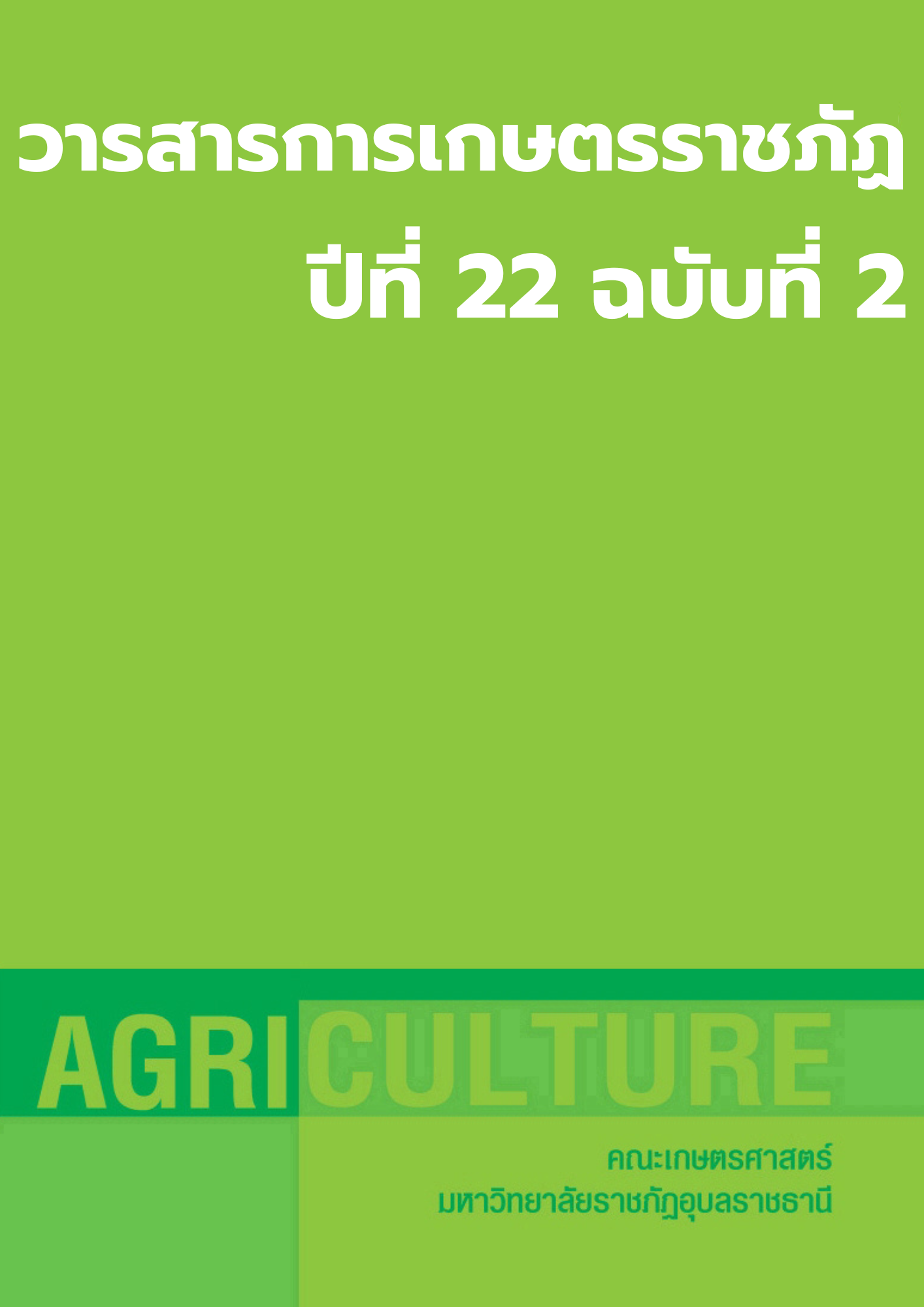การเลือกชนิดพืชอาศัยของแมลงวันแตง Zeugodacus cucurbitae (Coquillett) ในห้องปฏิบัติการ อาทิตยา สนทอง และ ดวงตา จุลศิริกุล
Main Article Content
บทคัดย่อ
แมลงวันแตง (Zeugodacus cucurbitae (Coquillett)) เป็นศัตรูพืชทางการเกษตรที่สำคัญในประเทศไทย การศึกษาการเลือกชนิดพืชอาศัยของแมลงวันแตงในห้องปฏิบัติการด้วยวิธีทดสอบแบบมีตัวเลือก และไม่มีตัวเลือก โดยใช้พืชอาศัยวงศ์แตง 5 ชนิด ได้แก่ ตำลึง แตงร้าน บวบเหลี่ยม ฟักทอง และมะระ วางแผนการทดลองแบบสุ่มสมบูรณ์ จำนวน 3 ซ้ำ บันทึกจำนวนดักแด้ และตัวเต็มวัยของแมลงวันแตงที่พบในพืชอาศัย คำนวณเป็นค่าเฉลี่ย และวิเคราะห์ความแปรปรวน พบว่า จำนวนดักแด้ และตัวเต็มวัยที่พบในพืชอาศัยต่างชนิดกันมีความแตกต่างกันอย่างมีนัยสำคัญ โดยแตงร้านเป็นพืชอาศัยที่มีจำนวนดักแด้ และตัวเต็มวัยของแมลงวันแตงมากที่สุด ทั้งในการทดสอบแบบมีตัวเลือก (ดักแด้ 48.93% ตัวเต็มวัย 24.13%) และแบบไม่มีตัวเลือก (ดักแด้ 43.07% ตัวเต็มวัย 25.27%) อย่างไรก็ตาม ดักแด้ที่ได้จากแตงร้านกลับมีอัตราการฟักเป็นตัวเต็มวัยต่ำกว่าดักแด้ที่ได้จากมะระ ซึ่งมีอัตราการฟักเป็นตัวเต็มวัยสูงที่สุด (แบบมีตัวเลือก 64.94% แบบไม่มีตัวเลือก 78.38%) การศึกษาการเลือกชนิดพืชอาศัยทำให้ทราบถึงปัจจัยที่มีอิทธิพลต่อการเลือกเพื่อวางไข่ของแมลงวันแตง ซึ่งสามารถนำผลการวิจัยไปประยุกต์ใช้โดยการใช้กลิ่นจากพืชอาศัยดึงดูดร่วมกับกับดักเพื่อการควบคุมประชากรแมลงวันแตงในพื้นที่ที่มีการระบาดให้ลดลงได้


